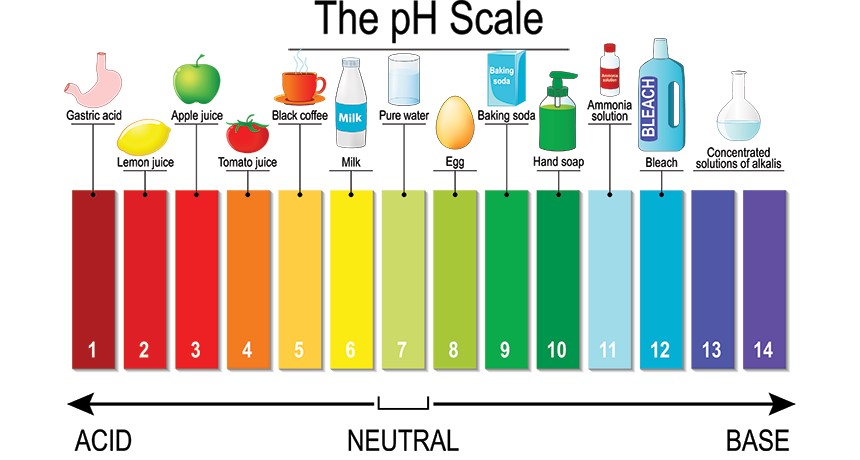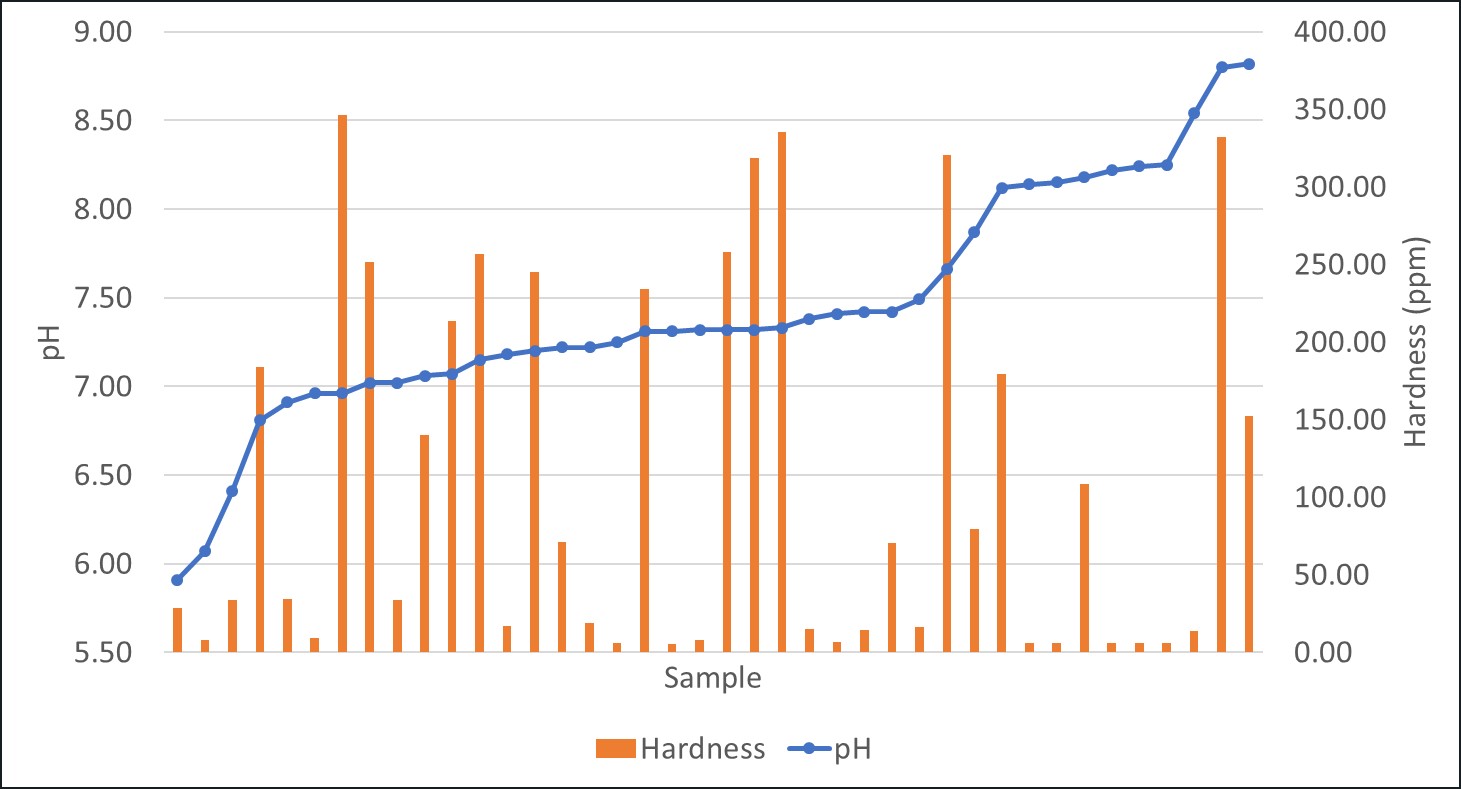Arkansas Spray Water Quality Testing
Arkansas Spray Water Quality Testing
By: Tommy Butts, Extension Weed Scientist
Spray water quality, specifically pH and hardness, can impact the efficacy of numerous pesticides. It has been shown that as water pH increases into more alkaline or basic conditions (pH greater than 7), pesticide active ingredients become less stable and therefore, less effective. Most fungicides are better suited to be applied in spray water that is less than a pH of 8. Several insecticides, including Heligen (virus), pyrethroids, and organophosphates, lose effectiveness in alkaline solutions, especially when the pH begins reaching values of 9. Herbicides can also be severely affected by spray pH and water hardness. Previous research has shown losses in weed control from graminicides (Ricestar, Clincher, Provisia, Select Max, etc.), mesotrione (Callisto), glufosinate (Liberty), 2,4-D, dicamba, and glyphosate when spray water pH increased above 7 and/or water hardness was greater than 200 ppm. Additionally, the pH scale (Fig. 1) is logarithmic, meaning that even small changes in water pH can result in significant changes in the overall stability and effectiveness of pesticides. For example, a pH of 8 does not necessarily seem like a big deal when compared to a neutral solution at a pH of 7. However, the solution with a pH of 8 is actually 10x more basic/alkaline than the solution with a pH of 7. If we have a solution with a pH of 9, that solution is 100x more basic/alkaline than the neutral solution with a pH of 7.

Fig. 1. The pH scale represented with example solutions at each specific pH level.
So what does all of this mean for Arkansas pesticide applications? In general, regardless of pesticide (herbicide, insecticide, or fungicide), active ingredients tend to be more efficacious in neutral or slightly acidic spray water and with low water hardness (i.e. soft water). But how can we know what our spray water quality actually is?
This is where we come in. The weed science program as a part of the University of Arkansas System Division of Agriculture is collecting spray water samples and conducting a pH and water hardness analysis. If you have water that is used for pesticide applications that you would like tested for pH and water hardness, please collect a 1 L sample (approximately). Also, please record the GPS coordinates of where the water sample was taken and a short description of the sample (location, city water, rural water, surface water, etc.). Once collected, either ship the samples directly to me (Tommy Butts) in Lonoke (2001 Hwy 70 E, Lonoke, AR 72086), or contact your local county Extension agent to drop it off with them, and we will coordinate a pickup. Primarily we are looking at water that is used for pesticide spray applications, but this can include row crops, pastures, or anything else where this water is being used for pest control. We will analyze the samples this fall, and make sure to share the results again with any of the participants this winter.
The goal of this research is to build a database of spray water quality used for pesticide applications across the entire state of Arkansas. Once we have an idea of the range of pH and hardness across the state, we will be conducting greenhouse and field studies to evaluate how water quality is affecting our pesticide applications, and if there are any adjustments (acidifiers, AMS, other adjuvants) that we can make to improve the efficacy of our pesticides.
We began this spray water sampling in 2019, and we had approximately 40 samples submitted last year. Results from these initial samplings (Fig. 2) revealed a couple of interesting things. First, there were a wide range of spray water pH and hardness values across Arkansas. Spray water pH ranged from about 5.9 to 8.9, and water hardness ranged from about 10 to 350 ppm (very soft to extremely hard). Second, as can be seen in Fig. 2, there seems to be no correlation between spray water pH and water hardness values meaning you may have a neutral pH but very hard water or maybe you have very soft water and a high pH. This further complicates the interactions between spray water and our pesticides.

As a final note, with the threat of COVID-19, please be safe when collecting or dropping off samples to any Extension personnel and remember to maintain the appropriate social distancing practices. Let’s all stay safe out there.
If you have any questions, please contact your local county Extension agent or contact me directly at tbutts@uada.edu or (501) 804-7314. Thank you!